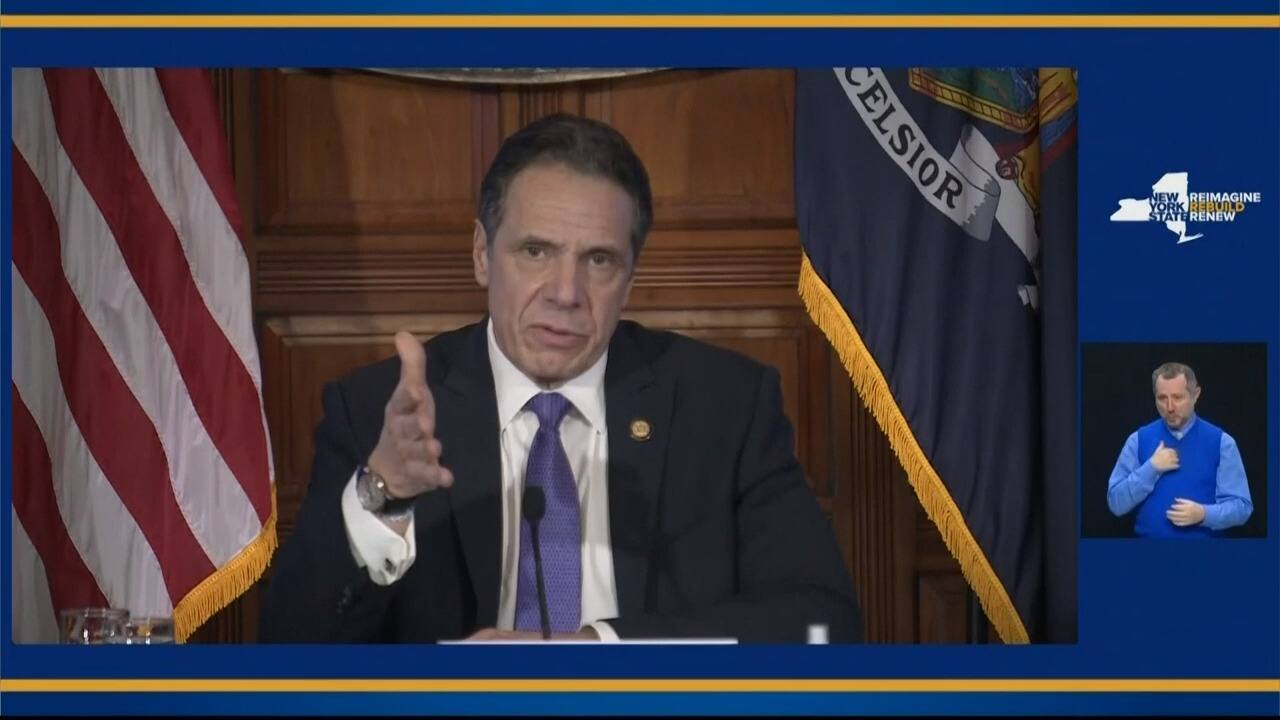Parsing Andrew Cuomo’s apology

Parts of his explanation — and multiple apologies — lead to questions, though, including a few detailed below.
1. The caveats
The relevant portion of Cuomo’s news conference was devoted to apologizing and suggesting he wasn’t shirking responsibility for his actions. He said he has apologized, is apologizing, and will continue to apologize in the days to come.
In doing so, though, he walked a very fine line between expressing regret and acknowledging culpability.
“I didn’t know at the time I was making her feel uncomfortable,” he said of one accuser. “I never meant to. But that doesn’t matter; if a person feels uncomfortable, if a person feels pain, if a person is offended, I feel very badly about that, and I apologize for it. … There’s no ‘but,’ you know, it’s — I’m sorry.”
Cuomo added later: “What I also understand is: It doesn’t matter … my intent. What it matters is if anybody was offended by it. I could intend no offense, but if they were offended by it, then it was wrong.”
Cuomo’s comments dealt more with what he should apologize for vs. what he felt he should be held accountable for. Despite Cuomo’s insistence, though, his comments have included significant caveats — the biggest of them being of the if-they-were-offended variety.
In his Sunday statement after his second accuser came forward, for example, he did express regret — albeit “to the extent anyone felt” uncomfortable.
Even his statement Wednesday carried a few “buts.” After saying he was wrong and embarrassed, he added: “But this is what I want you to know, and I want you to know this from me directly: I never touched anyone inappropriately. … I never knew at the time that I was making anyone feel uncomfortable.”
He added later: “I’m sorry for whatever pain I’ve caused anyone. I never intended it. And I will be better for this experience.”
The defense is clearly that he had no idea that his actions were harmful. But he also suggested that “doesn’t matter.” And that reinforces questions about why someone in his position — even according to the allegations he has tacitly acknowledged — might not have at the very least been more careful.
If one’s intent doesn’t matter, how does that reflect on Cuomo’s decision to press forward?
2. Affectionate conduct toward ‘men [and] women’
During the question-and-answer session, Cuomo responded to his latest accuser, whose face a photo shows Cuomo put his hands on before he, according to the accuser and another witness, requested a kiss, despite them never having met.
Cuomo repeatedly suggested this was merely his affectionate way of dealing with constituents.
“You can go find hundreds of pictures of me kissing people — men, women,” Cuomo said. “It is my usual and customary way of greeting. … By the way, it was my father’s [former governor Mario Cuomo’s] way of greeting people. You’re the governor of the state. You want people to feel comfortable. You want to reach out to them. I do it. I kiss and hug legislators. I was at an event in Queens the other day, hugged the pastors and the assembly members who were there.”
But New York Times investigative reporter Susanne Craig noted past reporting that this was the kind of interaction Cuomo actually avoided during the 2014 campaign season, when he declined to glad-hand with the public. Perhaps that was a symptom of a politician trying to avoid unscripted moments when he was a heavy favorite for reelection, but it suggests it’s not so closely tied to this political brand.
What’s more, as I wrote this week, the reckoning the public has undergone about such things in recent years — and Cuomo’s own comments about that reckoning — mean someone in his position should have understood this as being a potential problem, given how recent some of the alleged events are.
The Franken parallel
Cuomo’s defense, in many ways, parallels perhaps the last Democratic politician with a national profile to succumb to sexual harassment allegations: former senator Al Franken (D-Minn.).
Franken, like Cuomo, was accused of conduct that falls far short of that of many other powerful men who have been brought down. Franken also tried to argue that he didn’t truly appreciate, in real time, how his actions might have made women feel. But even as he was defending himself, Franken didn’t really address the most severe allegations against him — specifically, that he forcibly kissed an actress on a USO tour. He would later reflect that he didn’t really know how to approach the allegation.
This is an especially difficult topic for Democrats — given many of them have said in recent years both that women who accuse men should be believed and that intent isn’t what matters (as Cuomo suggested repeatedly Wednesday).
But just as with Franken, this is a standard that Cuomo needs to address. Cuomo said in his news conference repeatedly, “I never touched anyone inappropriately.” That’s basically impossible to reconcile with former aide Lindsey Boylan’s account that he gave her an unwanted kiss on the lips — after multiple indications, according to Boylan, that he found her attractive.
Cuomo’s news conference Wednesday — like Franken’s denials — focused more on the less-serious allegations against him, either for fear of directly calling a female accuser a liar or wanting to focus things on what voters might regard as grayer areas of conduct.
Cuomo and his staff have in the past called into question Boylan’s account, but that account feeds into the others and can’t just be ignored. Franken is a testament to that.






